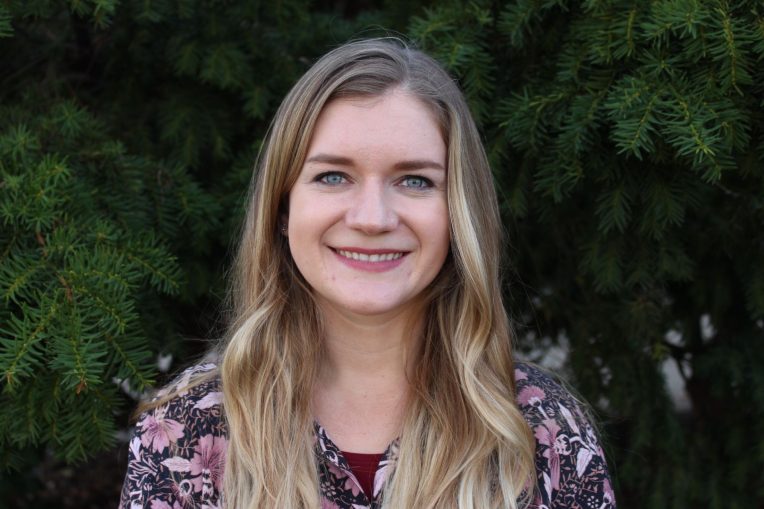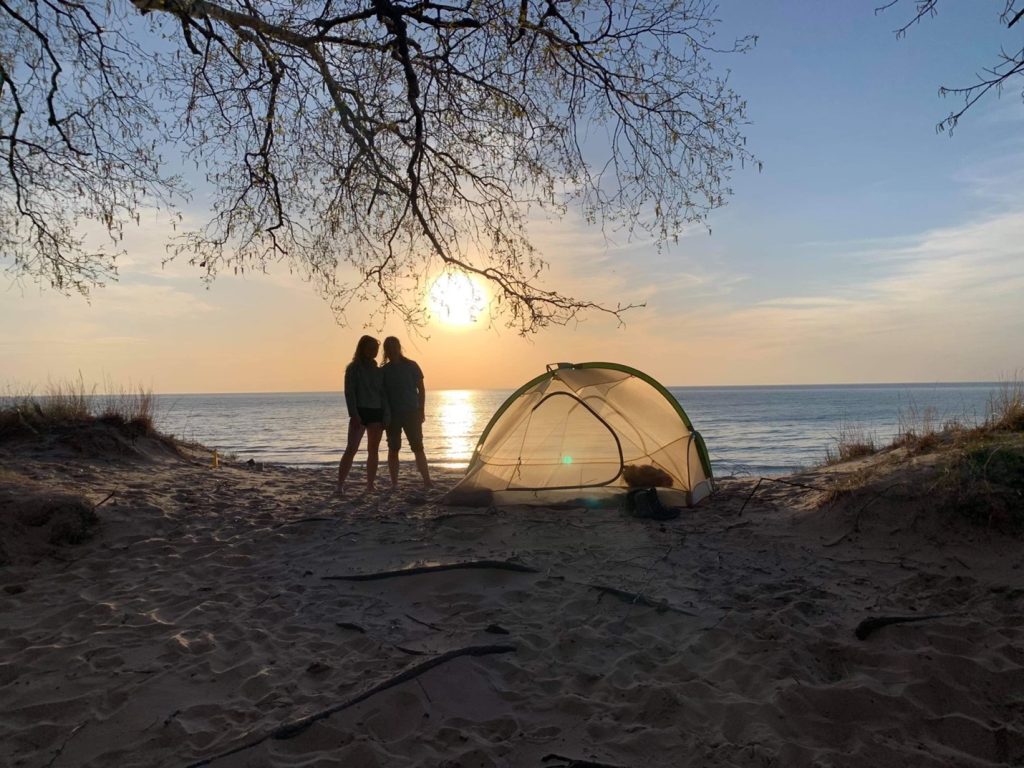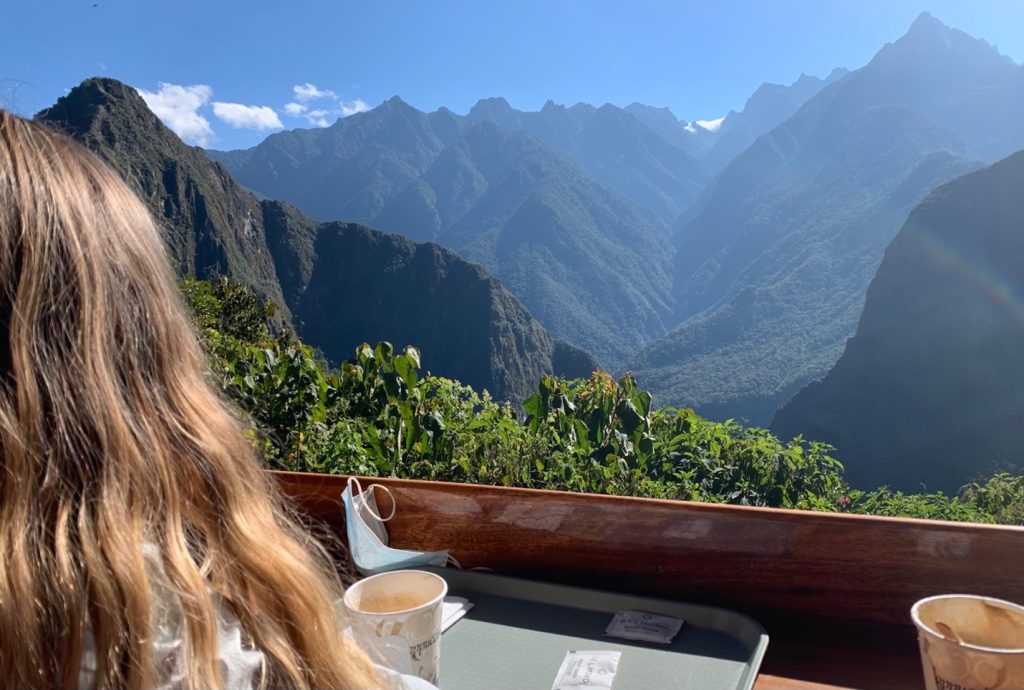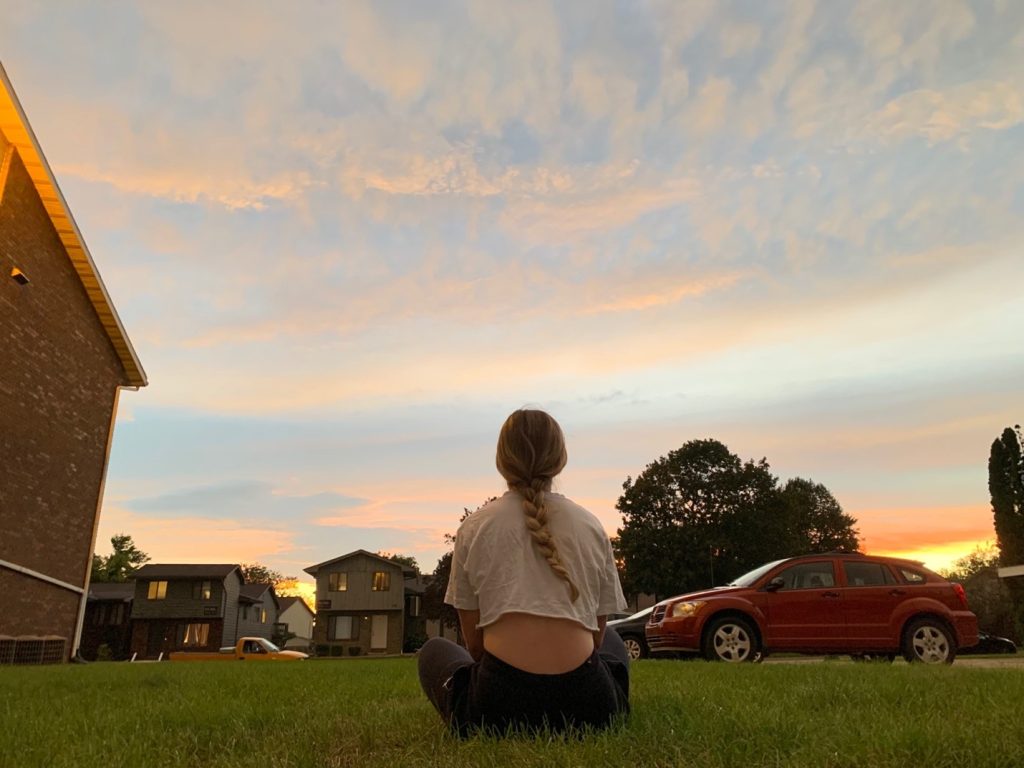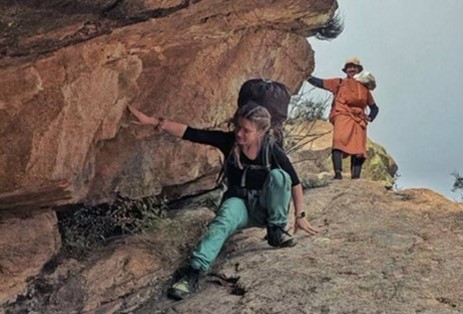The Graduate School has selected Autumn Chall as its November GradBird Scholar recipient! GradBird Scholar is an initiative to recognize graduate students for their scholarly endeavors at Illinois State University.
Autumn is originally from Michigan and is very proud of the accomplishments she had while growing up there. At Eastern Michigan University, Autumn studied Psychology and the program Teaching English to Speakers of Other Languages. After studying in Michigan, Autumn came to Illinois State to pursue her Clinical Counseling master’s degree through the Department of Psychology. Her thesis studies the experience of awe and how it can bring about a positive effect.
Outside her studies, Autumn adores the lakes and trees in her home state. Other than that, some of her favorite things are getting outside and exercising, being still with meditation or yoga, cooking and baking healthy foods, exploring new places (and finding new cafes to try in each), cats, and long conversations about meaningful topics.
What is your favorite part of the Biological Sciences program here at Illinois State?
My favorite part of my program is how I am learning to be both a scientist and a practitioner. Being involved in research, teaching, and practicing therapy in the same master’s program is helping me develop as a scholar, professional, and person. Additionally, I appreciate all of the support I receive from professors at my practicum and, especially, from my cohort. I work and study with the most amazing people!
Do you work with a specific faculty/staff member to help with your research?
I work with Dr. Jefferey Kahn on my research and am so grateful to have him on my team. He is a fantastic advisor because he is very knowledgeable about the research process but still leaves me with the autonomy, independence, and decision-making power I need.
Can you explain your research & its importance of it within your field?
I’m studying the experience of awe and how it is that it can bring about positive affect. In the face of awe, one may find their self fading into the background. The view from the top of a mountain, the birth of a baby, or even learning about a good deed someone has done can bring about awe, ushering one into the present moment and improving their mood. These are some of the most powerful, life-changing moments one can have. Although it is clear that awe can improve the effect, how this happens is not yet clear. Self-transcendence and lowered focus on oneself are two pathways I am exploring by asking participants to write about awe and neutral experiences and answer questions about their experiences. Knowing more about awe can help us improve our use of it as a tool in therapies, such as wilderness therapy, psychedelic therapy, and narrative therapy.
Why do you enjoy researching this topic, and what more do you hope to learn about it?
When we see young children playing, we see that they are often in awe of what we might view as the most mundane things. To some extent, I believe it is possible for adults to cultivate this awe in their life and be better off for it. Because, of course, children are right. The world is mysterious and awe-inspiring. That is just easily forgotten in the flow of daily life. I enjoy this research because it is a joyful topic to explore, a constant reminder of that truth for me, and one that can genuinely brighten people’s lives. I would like to continue learning about how awe fits into well-being overall and how it can be cultivated in therapy.
What do you hope further research about this topic will do?
In general, my hope is that the study of awe can result in an increase in increase in awe experiences and genuine engagement in life, both for the average person and clients struggling with issues like grief and depression. I think that a big way that this can happen is through further validation of alternative therapies. As humans become increasingly distant from their connection to nature, the need for nature-based therapies becomes increasingly clear. The experience of awe has been shown to lead to a variety of positive outcomes and is likely part of the reason why natural environments have the therapeutic effects that they do. The same is true of other alternative therapies, such as psychedelic therapy. Currently, these types of therapies are more of an exception and are not as widely used as traditional options. My hope is that further research on this topic will validate these types of therapy and clarify the way that they work. This way, it will be possible to isolate some of the most effective aspects to target with clients. Also, the hope is that through this process, these therapies become more accessible options in general.
Would you like to highlight anything else about your thesis project?
If you would like to experience some awe yourself, I have a few resources for you! One is The Awe Project. The other is the adventure program here at Illinois State through Campus Recreation, where I am a trip leader. We have hiking, climbing, skiing, and more throughout the semester, and I would love to see you there!
